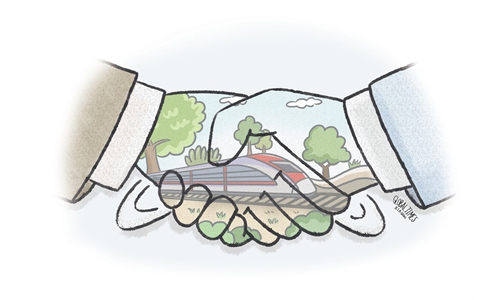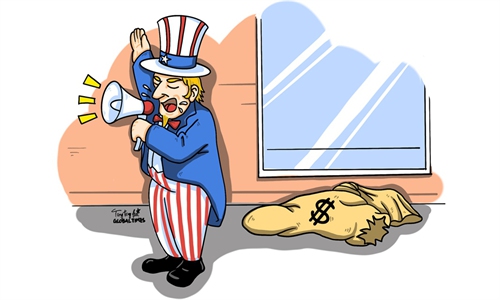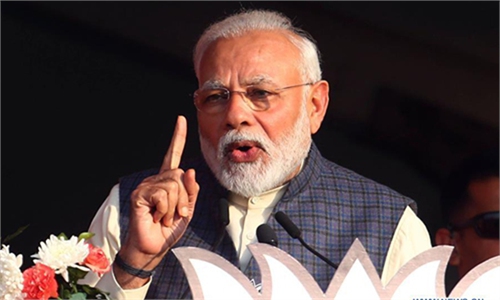
Illustration: Tang Tengfei/Global Times
As the Belt and Road Initiative (BRI) continues to advance, cooperation between China and Saudi Arabia has seen diversified development in addition to traditional energy infrastructure, Chinese media outlet Jiemian reported on Saturday.For instance, the two countries have established bilateral and regional coordination mechanisms that aim to align China's BRI and Saudi Vision 2030, so as to promote cooperation in infrastructure, production capacity, energy, trade and investment, finance and cultural exchanges, among others.
Saudi Arabia has become a focus of investment by Chinese companies. Statistics from Essence Securities showed that there are more than 160 large Chinese companies doing business in Saudi Arabia, covering such areas as railways, housing construction, ports, power stations and communication.
Indeed, China-Saudi Arabia cooperation is a vivid example of how the BRI has made remarkable progress in the Middle East as an effective platform for promoting regional trade and investment. The growing and diversified cooperation between China and the Middle East is largely built on respect for the sovereignty of other nations and the pursuit of common development, without any conspiracies or political motivation. Such a partnership is in line with regional economic development needs.
Arab countries were historically an important part of the ancient Silk Road, which makes them natural partners for BRI cooperation. Over the past decade, Arab states have widely welcomed and taken an active part in BRI cooperation.
China has signed cooperation agreements under the BRI framework with 21 Arab countries and the Arab League. China and Arab states have launched more than 200 large cooperation projects in such fields as energy and infrastructure, which have benefited nearly 2 billion people.
Why can BRI cooperation produce tangible results in the Middle East? First, China and Middle East countries have high economic and trade complementarities. The Middle East is rich in oil and natural gas, while China is one of the world's largest energy consumers. So the two sides are natural partners in energy cooperation.
Second, most Arab countries are pushing forward economic transformations so as to reduce their dependence on oil, a development that may also offer broad space for cooperation in the field of renewable energy between the two sides.
The Middle East also needs other resources and industrial development, which can be met with China's strength in infrastructure, manufacturing and financing.
China attaches great importance to the principles of mutual benefit and win-win results during BRI cooperation. For instance, China has pushed through a range of infrastructure projects in the Middle East, including ports, railways and power networks, which not only promote regional economic development, but also provide more business opportunities for Chinese companies.
China can always play an active and constructive role in the Middle East region because China's pursuit of cooperation has no geopolitical considerations and China has no intention of being a geopolitical player in the region.
Given the current complicated situation in the region, seeking economic and regional cooperation could be one of the important approaches to reduce conflicts and create favorable conditions for peaceful development.
The US has also proposed to engage in a major infrastructure project, the India-Middle East-Europe Economic Corridor. But it has more geopolitical purposes, with a view of countering China's influence in the region. Such a strong emphasis on the political side instead of economic cooperation will be a major reason why the project's fate, like other strategies the US proposed in the Middle East, is to be short-lived. Any plan mixed with geopolitical motives is bound to be derailed from promoting common and peaceful development in the Middle East.



